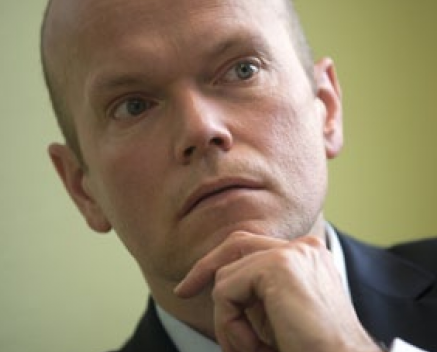What can we learn from Kant today? An INTER Mobility project on the significance of philosophy for questions with significant relevance to society.
Professor Heidemann of the University of Luxembourg developed an INTER Mobility project on the subject of “healthcare” and “contemporary Kantian philosophy” in a long-term cooperation with Dr Jens Timmermann from the University of St Andrews in Scotland.
According to Professor Heidemann, Kantian philosophy and its particular methods provide a sound basis to find answers to application-specific questions relevant to society.
Ethical problems in medical research
The questions are: What is cognition? What is consciousness awareness? What are perceptional judgements? Such questions lead to specific sub-projects, such as: What is the ethically appropriate behaviour towards patients suffering from Parkinson’s disease?
Within the scope of the exchange programme, these kind of ethical problems resulting from the medical research are tackled in Luxembourg, with the researchers from the Luxembourg Centre for Systems Biomedicine (LCSB).
Do we have a moral duty to healthcare? Or can we limit our duty of care? This is a question that assumes increasing significance in view of an ageing society. This is where the Kantian writings on “the duty of ethics” come into play.
Professor Heidemann elaborates on his ideas: “Here, for instance, the question arises: Is it ethically and morally justifiable to relay all the knowledge gained in an experiment or examination and their consequences to the patient? Or is it morally justifiable to withhold certain data from him?”
Imparting skills that may lead to a solution
There are no simple answers to these questions. “That is exactly the point”, says Professor Heidemann, adding “we should not be so naive – neither as philosophers nor neutral observers – to expect that philosophy can provide a concrete model that tells us: In this case do this and refrain from that.”
He adds: “We do not make predefine the decisions, but we impart the ethical skills that pave the way for a solution, and can be applied in practice by researchers or doctors.”
How does one conduct research as a philosopher?
Philosophers have no laboratory in which they can conduct experiments and test hypotheses. How does a philosopher conduct research?
“We, too, have our laboratories”, says Professor Heidemann and adds “but these are not physical, but mental spaces in which we carry out thought experiments. The key is: we are not concerned with abstract fantasies but thought processes and conceptual contexts.”
There are, according to him, two experimental approaches: One is in the free-ranging thoughts, for example, on whether we have a soul; the other through reference to the historical writings of for instance Plato, Aristotle, Saint Thomas Aquinas, Spinoza, Kant or Hegel.
In the same way as in natural sciences, thought experiments are published in scientific journals and presented at international scientific congresses.
“The main difference to the natural sciences is that our research is tested through observation, rather than empiricism”, explains Professor Heidemann and continues: “in philosophy, empiricism is not a sufficient prerequisite for the development of theory or real judgements about the world – as philosophy is, rather like mathematics, a science of ideas.”
This case study was originally featured in the FNR 2015 Annual Report
Photo: (c) Dietmar Heidemann
RELATED PROGRAMMES

